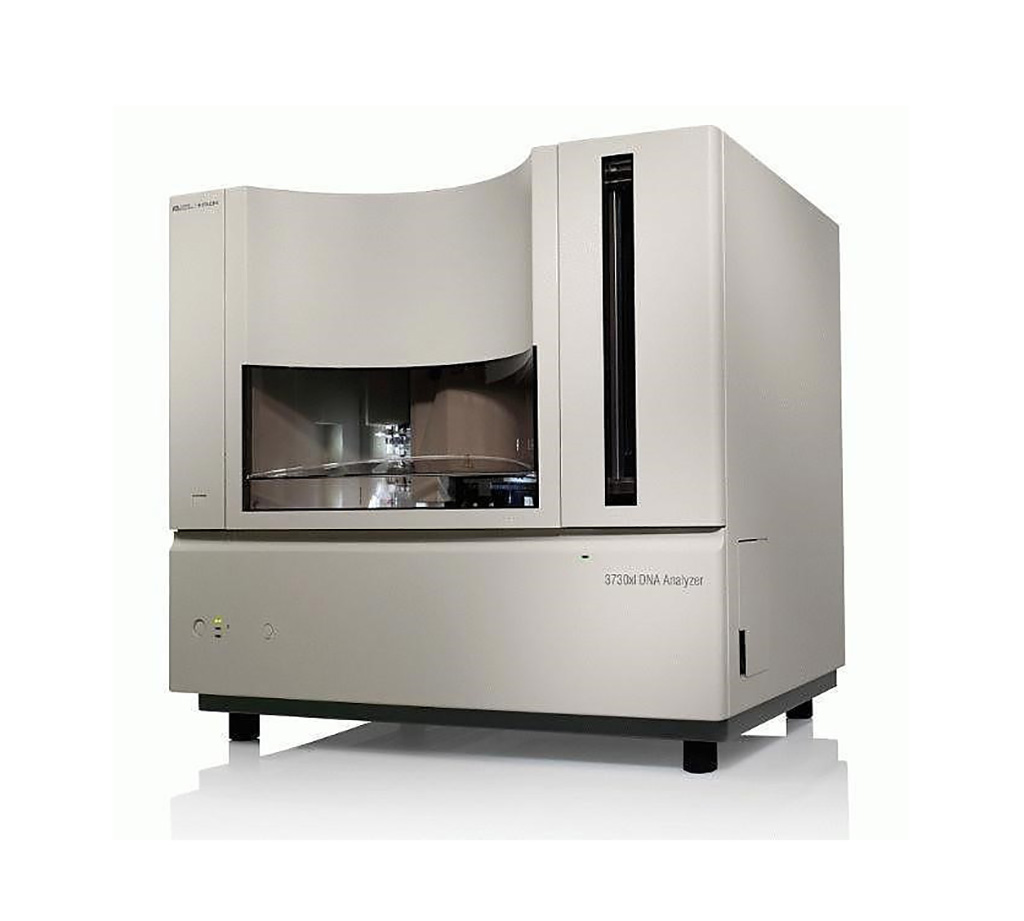Susceptibility Gene Identified for Idiopathic Pulmonary Arterial Hypertension
By LabMedica International staff writers
Posted on 14 Apr 2020
Idiopathic pulmonary arterial hypertension (IPAH) is a lung disorder characterized by high blood pressure in the pulmonary arteries. In this instance, “idiopathic” means that the cause of the pulmonary artery hypertension is unknown. Posted on 14 Apr 2020
Pulmonary arterial hypertension is rare, with about 1,000 new diagnoses in the USA each year. IPAH is a hard disorder to diagnose because some people do not have symptoms, and when there are symptoms of IPAH, they are similar to those of other heart and lung disorders.

Image: The 96-capillary 3730xl DNA Analyzer is the Gold Standard for high throughput genetic analysis and used for Sanger sequencing (Photo courtesy of Thermo Fisher Scientific)
Scientists at the Peking Union Medical College Hospital (Beijing, China) and their colleagues enrolled 230 patients with IPAH from two referral pulmonary hypertension centers in China. Eligible patients had no BMPR2 variants and were compared with 968 healthy control participants. Data were collected from January 1, 2000, to July 31, 2015, and analyzed from August 1, 2015, to May 30, 2018.
The investigators sequenced the genomes of 42 patients with IPAH, none of whom had BMPR2 variants. The team also performed whole genome sequencing (WGS), Sanger sequencing on an ABI 3730 automated sequencer (Applied Biosystems, Courtaboeuf, France), right heart catheterization, pulmonary vasodilator testing, plasmid construction, cell culture and transfection, measurement of 6-Keto–prostaglandin F1α levels using an enzyme-linked immunosorbent assay (ELISA) kit (Cayman Chemical, Ann Arbor, MI, USA).
After filtering, the scientists uncovered 1,986 rare variants affecting 1,772 candidate genes. Most of these alterations were present only in a single person, but 15 genes were altered in three or more people. Of those, PTGIS, MACF1, GTF3C1, and ABCA3 are expressed in the lung. As PTGIS encodes prostaglandin synthase, which is involved in prostaglandin production, the team suspected it might be the most relevant of those 15 genes. In a replication cohort of 188 patients with IPAH, they uncovered additional patients with PTGIS variants. In all, 14 patients harbored one of three rare PTGIS variants.
The three rare PTGIS variants: A447T, R252Q, and c.521 +1G>A, are all located in conserved regions of the gene and are predicted by in silico analysis to be deleterious. Functional studies found that the PTGIS splicing variant affects the gene's transcription, as it led to exon skipping and an in-frame deletion. The two missense variants, meanwhile, led to impaired enzyme activity, decreased prostaglandin production, and increased cell death of pulmonary microvascular endothelial cells.
The authors concluded that they had identified three rare loss-of-function variants in the PTGIS gene from two independent cohorts with IPAH. The genetic variants of PTGIS predispose pulmonary vascular responses to the iloprost stimulation. These findings suggest that PTGIS variants may be involved in the pathogenesis of IPAH. The study was published on April 1, 2020 in the journal JAMA Cardiology.
Related Links:
Peking Union Medical College Hospital
Applied Biosystems
Cayman Chemical














